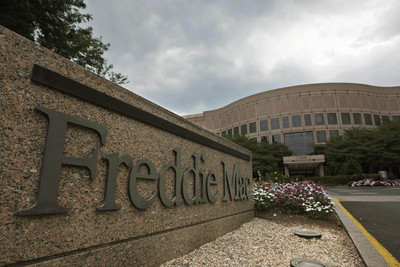Strategic reserve oil sale blocked
WASHINGTON -- Congress continued to struggle last week to pass legislation aimed at reducing the price of $4 per gallon gasoline.
Lawmakers rejected a bill that would have sold about 70 million barrels of easily refinable light crude oil from the Strategic Petroleum Reserve, the nation's emergency stockpile.
The release would have amounted to 10 percent of the stockpile, about three days supply. Democrats who pushed the bill said it would serve to drive down the price of gasoline in the short term while Congress seeks other solutions.
The light crude oil would be replaced in the stockpile with cheaper, heavy oil.
The bill gained a 268-157 majority vote. But Democratic leaders brought it to the floor under a special "suspension" procedure that permitted no amendments and required a two-thirds vote for passage.
Democrats have been trying to pass energy bills under suspension in part to prevent Republican amendments to expand oil drilling in the Outer Continental Shelf. House Speaker Nancy Pelosi, D-Calif., has strongly opposed expanded drilling.
Rep. Joe Barton, R-Texas, said releasing oil from the strategic reserve was an "energy gimmick" and the House should be tackling more comprehensive solutions, including offshore oil drilling.
Reps. Shelley Berkley, D-Nev., and Jon Porter, R-Nev., voted for the bill. Rep. Dean Heller, R-Nev., voted against the bill.
Meanwhile, the Senate also remained stymied.
Democrats were unable to overcome a Republican filibuster of a bill that would require the Commodity Futures Trading Commission to set limits on oil market trading. It also would close a loophole that allows traders to avoid U.S. scrutiny by doing business on the oil market in London.
Democrats charged that futures trading by energy speculators was helping drive up oil prices by between 20 percent and 50 percent.
While expressing support for curbs on speculation, Republicans also pressed for further amendments to allow oil drilling in off-limits areas along the Pacific and Atlantic coasts, and in the eastern part of the Gulf of Mexico.
Party leaders could not agree on how many amendments would be debated. At the end of the week, a procedural vote to move forward with the bill fell short. It was 50-43, but 60 votes were needed.
Sen. Harry Reid, D-Nev., supported moving the bill. Sen. John Ensign, R-Nev., voted against moving it forward.
It was not clear whether lawmakers would pass legislation attacking gasoline prices before leaving for their scheduled summer recess.
HOUSING BILL PASSED
Congress gave final passage to a long-in-the-works mortgage rescue bill. The House voted for it, 272-152. The Senate followed, 72-13.
For homeowners facing foreclosure, the centerpiece is a program that could allow them to refinance into more affordable fixed-rate loans backed by the Federal Housing Administration. The FHA is granted authority to insure up to $300 billion in such loans.
It also includes $15 billion in tax breaks, including a $7,500 credit for some first-time homebuyers.
The bill would send $3.9 billion in grants to cities to buy up foreclosed homes and prepare them for resale.
It also gives the Treasury Department the authority to extend unlimited borrowing credits if necessary to prop up Fannie Mae and Freddie Mac, government chartered firms that own or guarantee nearly $5 trillion in mortgages and whose collapse could crash the economy.
Supporters said the bill could rescue as many as 400,000 troubled homeowners, and it sends a signal that jittery housing markets are being made sound.
Some critics said the bill rewards speculators and unscrupulous lenders who triggered the mortgage crisis by offering risky loans. Others expressed unhappiness with giving Treasury officials what they said were unprecedented powers to shore up Fannie Mae and Freddie Mac.
In the House, Berkley, Porter and Heller voted for the bill.
In the Senate, Harry Reid, D-Nev., voted for the bill. John Ensign, R-Nev., voted against it.
BRIDGE REPAIRS APPROVED
The House voted for a $1 billion bill to speed repairs on bridges.
It was introduced almost a year ago, following the Aug. 1, 2007, collapse of the Interstate 35 bridge in Minneapolis that killed 13 people.
Besides the funding, the bill would revamp the way the government monitors bridges. It would require states to use federal money in bridge repair accounts solely for bridge repairs.
Under current law, states are allowed to shift that money to other needs.
President Bush opposed the bill, saying the government already spends adequate sums on bridges. Congress in 2005 authorized $4.5 billion for bridge repairs this year.
The vote for the bill was 367-55. Berkley and Porter voted for it. Heller voted against it.
AIDS BILL PASSED
A bill that passed the House and was sent to President Bush would authorize a big increase in federal funding to fight AIDS and other diseases overseas.
The global AIDS bill approved $48 billion over five years, a jump from $15 billion authorized in current law.
Activists said they doubted that Congress would be able to afford following through and appropriating that much money for the effort.
The vote was 303-115 for passage. Critics were worried about the costs.
Berkley and Porter voted for the bill. Heller voted against it.

















